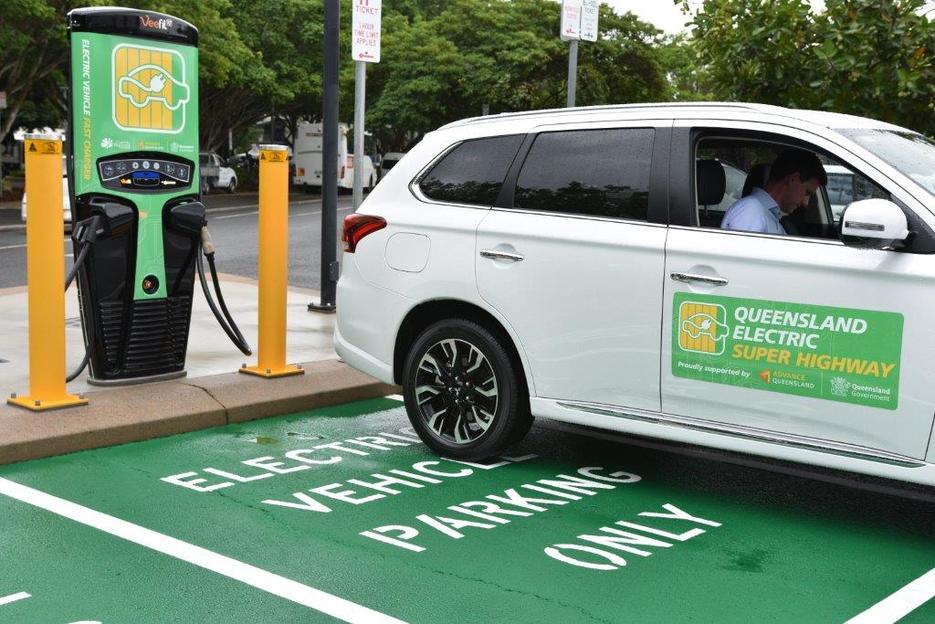Don't replace rego, licence fees with travel tax
News
RACQ has questioned a proposal to overhaul licence fees, stamp duty, fuel excise and registration in favour of a tax per kilometre travelled, saying it would add an unnecessary burden to everyday families, without supporting Australia’s transition to electric vehicles (EVs).

Brisbane Times reported car manufacturers had called for the overhaul to halt the various States progressing with their own plans to levy electric vehicles per kilometre.
RACQ Head of Public Policy Rebecca Michael said while road user charging reform was necessary, bundling all the costs drivers pay to run their vehicles would fall short of the mark.
“We agree the Federal Government needs to step in a lead road user charging reform for the country rather than having the States slap together confusing taxes in a piecemeal approach,” Dr Michael said.
“Licence fees, stamp duty, rego and fuel excise all serve slightly different purposes and the tax collected pays for different things. Some families also share cars, others have several cars and switch them depending on what they need, cars get sold to new owners and people change their licence conditions.
“A distance travelled charge may be the best approach but bundling those other charges into the reform is not the right plan.”
Dr Michael said because EVs and low emissions vehicles paid little to no fuel excise tax, it was important those drivers contributed to funding road infrastructure in another way.
“We do need a simpler system for all motorists which supports the transition to low emission vehicles, allows for sustainable funding for the transport network, and is affordable without increasing transport disadvantage,” she said.
“We don’t want to discourage EV uptake, especially as Australia lags behind the rest of the world, but it is about balance.
“A federally led approach, as well as removing the luxury car tax and stamp duty on all new cars to encourage people to buy safer and cleaner vehicles and a 30 percent reduction in annual registration costs on new and used low emission cars will help bolster our transition to EVs.”
RACQ Head of Public Policy Rebecca Michael said while road user charging reform was necessary, bundling all the costs drivers pay to run their vehicles would fall short of the mark.
“We agree the Federal Government needs to step in a lead road user charging reform for the country rather than having the States slap together confusing taxes in a piecemeal approach,” Dr Michael said.
“Licence fees, stamp duty, rego and fuel excise all serve slightly different purposes and the tax collected pays for different things. Some families also share cars, others have several cars and switch them depending on what they need, cars get sold to new owners and people change their licence conditions.
“A distance travelled charge may be the best approach but bundling those other charges into the reform is not the right plan.”
Dr Michael said because EVs and low emissions vehicles paid little to no fuel excise tax, it was important those drivers contributed to funding road infrastructure in another way.
“We do need a simpler system for all motorists which supports the transition to low emission vehicles, allows for sustainable funding for the transport network, and is affordable without increasing transport disadvantage,” she said.
“We don’t want to discourage EV uptake, especially as Australia lags behind the rest of the world, but it is about balance.
“A federally led approach, as well as removing the luxury car tax and stamp duty on all new cars to encourage people to buy safer and cleaner vehicles and a 30 percent reduction in annual registration costs on new and used low emission cars will help bolster our transition to EVs.”
Related topics
Things to note
The information in this article has been prepared for general information purposes only and is not intended as legal advice or specific advice to any particular person. Any advice contained in the document is general advice, not intended as legal advice or professional advice and does not take into account any person’s particular circumstances. Before acting on anything based on this advice you should consider its appropriateness to you, having regard to your objectives and needs.